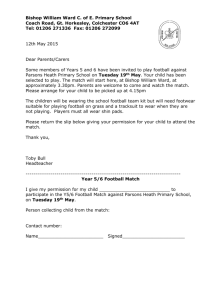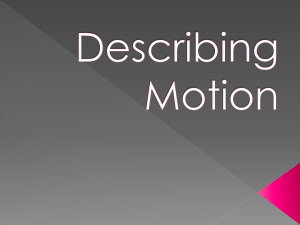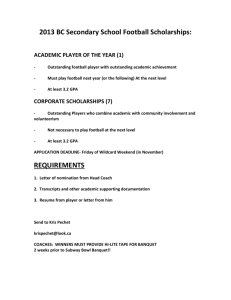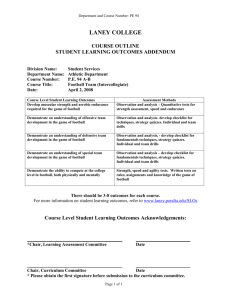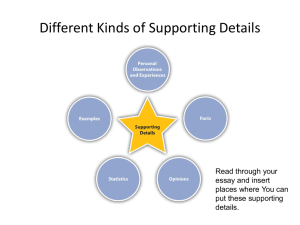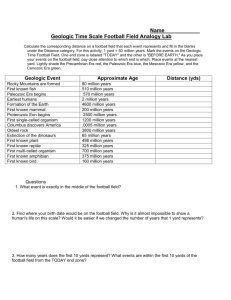Fact or opinion? - Skills Workshop
advertisement
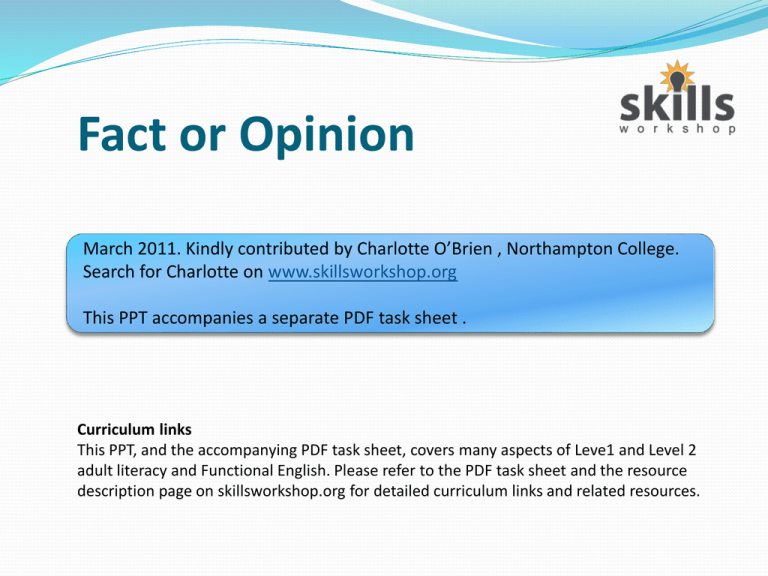
Fact or Opinion March 2011. Kindly contributed by Charlotte O’Brien , Northampton College. Search for Charlotte on www.skillsworkshop.org This PPT accompanies a separate PDF task sheet . Curriculum links This PPT, and the accompanying PDF task sheet, covers many aspects of Leve1 and Level 2 adult literacy and Functional English. Please refer to the PDF task sheet and the resource description page on skillsworkshop.org for detailed curriculum links and related resources. By the end of the lesson you will be able to: • Identify the difference between a fact and opinion • Highlight facts from a document • Express your opinions appropriately • Create a newspaper article How many Pandas? By the end of the lesson you will be able to: • Identify the difference between a fact and opinion • Highlight facts from a document • Express your opinions appropriately • Create a newspaper article Why’s it important? When reading, either for pleasure or for work, it is important that you can ‘read between the lines’. By this, we mean that you need to read or listen carefully to a statement and before accepting it as the truth you decide whether it is an opinion or a fact. What’s the difference? ‘This wine is too dry.’ This is an opinion based on the drinker’s preference for a sweeter wine. It is not a fact. Written as a fact, the statement should be: ‘This is a dry wine.’ How do you know? Opinions come from individuals and may not always be based on facts (or all the facts). A fact is based on what is accepted as the truth because it can be proved. For example ‘In 2002, this company had two hundred and twenty two employees.’ This can be proved through employment records – thus it is a fact. Bias Take a statement such as: ‘All schools should reduce other sporting activities and offer extra football coaching, because all young boys like football.’ If the above statement was made by a football coach we might consider that the statement was biased (prejudiced in favour of football). We appreciate, without being told, that the statement is not a fact and that the person saying it is so passionate about the game that s/he is prone to make biased statements in favour of football. Where do you find it? Where do you commonly find fact and opinion? Newspapers Magazines Leaflets Posters Internet websites Select the facts Scenario: You are a newspaper reporter in Japan. A last minute arrangement has been made for you to present a short article about the Tsunami. Task: You need to research the facts to do with this disaster, as you don’t want to cause any unnecessary stress or panic. You only have 10 minutes to collect your information. You then have 15 minutes to plan and write your article, so you will need to plan what you are going to report to make sure you put all the information across. You may put your own opinion in, but you must also include facts. Reminder: Who – When – Where – What – How - Why Current affairs There is a lot of panic and stress within the media at the moment. Do you know why? Watch the following clip, make notes on the key points. http://news.sky.com/skynews/Home/World-News/Video- Japan-Earthquake-Tsunami-Swamps-Land-After-89Magnitude-Quake-Rocks-Buildings-InTokyo/Article/201103215950160?f=rss Discuss In pairs discuss the clip you just watched. What are the facts? What is your opinion? http://news.sky.com/sky- news/app/liveTV/liveTv.html?lid=Live_TV_Popup&lpos=Vi deo_Hub

